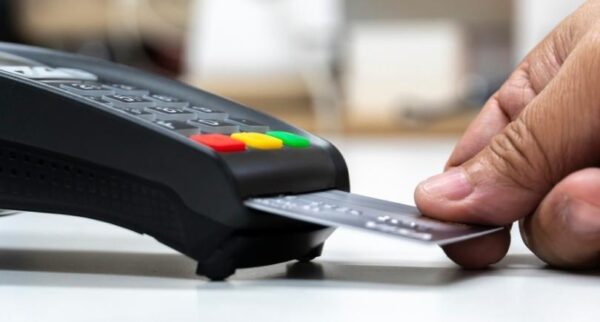
Why you should trust CardRatings.com
At CardRatings.com we discuss the most up-to-date news and trends within the credit card space. Since we first pioneered the concept of online credit card reviews in 1998, our team of financial experts has provided comprehensive and unbiased credit card reviews for more than 175 cards, plus hundreds of additional resource articles to help educate everyday cardholders so they can feel more confident about their card choices. All our content is written and reviewed by industry experts. Though our content may occasionally contain references to products from our partners, we maintain strict editorial integrity and advertiser relationships and compensation never influences ratings, reviews or featured products. The difference between editorial content and advertising must always be clearly stated. Learn more.
When you pay with a rewards credit card, you might get airline miles, points redeemable for merchandise, or cash back into your account. Ever wonder who’s footing the bill?
Every time you pay with a debit or credit card, retailers get charged an “interchange fee” from card issuers to accept the payment. Interchange fees vary from card to card, but typically hover between 1 and 3 percent of the final purchase price, according to a study by the Government Accountability Office.
Since rewards and cash back cards usually come with higher interchange fees than traditional credit and debit cards, critics argue that the benefits of these cards may not be worth the increased cost they place on retailers. Do retailers pass these costs on to their customers? Are your reward credit card offers really rewarding you?
No free lunch for the consumer
The major reason that interchange fees for rewards credit cards are higher than those for traditional cards is because banks use the interchange fee to help subsidize the cost of the rewards program, says Scott Schuh, senior economist, policy advisor and director of The Consumer Payments Research Center at the Federal Reserve Bank of Boston.
“[Rewards are] a cost to the bank and like any economic unit, they typically try to recover their costs with the price of the product,” Schuh explains. “… A card that does not pay rewards is a low-cost card to the bank and a card that pays high rewards is a high-cost card to the bank.”
Higher interchange fees generally mean a higher cost of doing business for the retailer, adds Schuh, which may translate to higher costs for the consumer, particularly in highly competitive markets. They can also translate to actions retailers take to minimize or eliminate interchange fees and reward consumers who pay with cash or check rather than plastic.
Why some merchants prefer cash
Under current law, merchants can choose if they want to accept credit cards at all and, if so, which cards they want to process. It’s illegal to add a surcharge for paying by credit card, but retailers may offer a discount for consumers who pay by cash or check.
Trish Wexler, spokeswoman for the Electronic Payments Coalition, a Washington, D.C., nonprofit that represents the interests of banks, credit unions and major payment networks including Visa and MasterCard, says that a discount for cash payment makes sense in certain industries.
“Particularly from gas retailers you’re more likely to see [cash discounts] because…people will tend to pay at the pump, but the real profits from that industry are inside the store,” Wexler says.
The incentive for you to use cash instead of your gas credit card sidesteps interchange fees and gets you inside the store, walking past marked-up goods as you get out your wallet. In other businesses, making room for rewards credit cards, even with their higher fees, can still make good financial sense, says Wexler.
“[Reward and cash back card holders] bring with them higher value to that retailer because rewards card holders tend to spend more at those stores,” Wexler explains. “It’s a better business proposition for that retailer.”
How to fight back
Interchange fees are actually just a portion of what merchants pay to process credit card transactions, says Heather Petersen, CEO of the National Merchants Association, an advocacy group in Burbank, California that focuses on optimizing credit card processing for small and medium-sized businesses. On top of interchange fees, retailers also pay smaller surcharges to the card processor, the consumers’ financial institution and other parties.
“The FTC has regulated some of it, but you [could] see everything from customer service fees to debit access fees, statement fees, PCI [Payment Card Industry] compliance fees,” Petersen says. “You name it, you can find it, I’m sure.”
While business owners can’t eliminate interchange fees, they can ensure that they’re not overpaying by having a third party group like the National Merchants Association optimize their processing contracts, says Petersen.
Likewise, if you’re a consumer, you can’t get rid of the increased cost caused by interchange fees, but you can save money by not overspending on your rewards credit cards and by maximizing your rewards to ensure that the markup you’re paying pays off in the end. That means using rewards points or miles in a timely manner, taking steps to ensure that rewards don’t expire and staying within the limits of the reward card program.


